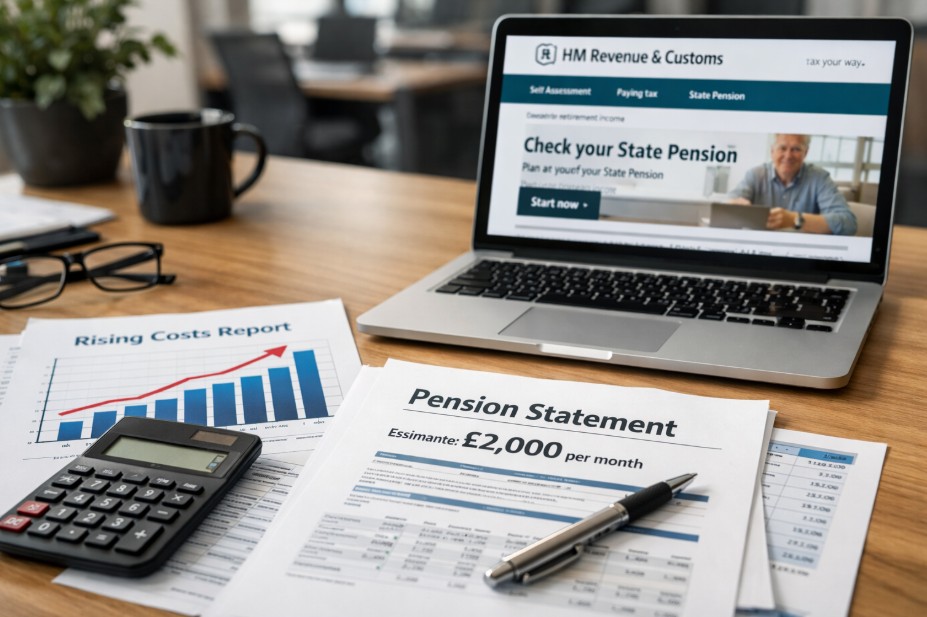Table of Contents
ToggleStarting a cleaning business in the UK can be a rewarding venture, offering opportunities in both residential and commercial markets. However, understanding the legal requirements is essential to operating successfully and avoiding penalties.
Depending on the services you provide, you may need specific licenses, registrations, and insurance to ensure compliance with UK regulations. By aligning your operations with these requirements, you can establish a strong foundation and focus on growing your venture.
This guide outlines everything you need to know about what license do i need to start a cleaning business.
Understanding Cleaning Business in the UK

Whether you’re establishing a domestic cleaning service or a larger commercial operation, understanding licensing, registration, and health and safety requirements is critical.
The first step is to choose a business structure sole trader, partnership, or limited company and register accordingly.
Complying with health and safety regulations is especially vital if your services involve hazardous cleaning substances. Moreover, securing the right insurance, such as public liability or employer’s liability insurance, protects your business against potential risks.
Key considerations include:
- Registering your business with HMRC or Companies House.
- Understanding the licensing and certification requirements specific to your services.
- Ensuring waste disposal methods comply with UK environmental regulations.
Common Challenges
Entrepreneurs often overlook essential elements such as public liability insurance or waste disposal permits. Failing to address these requirements can lead to penalties and business interruptions.
By thoroughly understanding the legal landscape and consulting with experts, you can build a legally sound foundation for your cleaning business.
What License Do I Need to Start a Cleaning Business?
The type of license or registration required to start a cleaning business in the UK depends on the nature of your services. While there is no universal cleaning license, certain permits and regulations must be adhered to for specific operations.
For instance, businesses that dispose of waste must apply for a Waste Carrier License from the Environment Agency.
If your cleaning services involve handling hazardous substances, compliance with the Control of Substances Hazardous to Health (COSHH) regulations is mandatory.
Additionally, all cleaning businesses must register as a sole trader, partnership, or limited company with HMRC.
Common License Requirements:
- Waste Carrier License: Essential if you dispose of waste materials from cleaning jobs.
- COSHH Compliance: Required for handling potentially harmful cleaning products.
- Business Registration: Necessary to legally operate your business in the UK.
By understanding the unique licensing requirements for residential and commercial cleaning, you can ensure compliance and avoid penalties. Tailoring your licenses to match your business operations helps build trust and credibility among clients.
Do I Need a License to Start a Cleaning Business in the UK?

Not all cleaning businesses in the UK require a specific license to operate, but several legal obligations must be met. Whether you’re starting as a sole trader or registering a company, you’ll need to comply with tax and employment laws.
Registering your business with HMRC is a fundamental step for sole traders or partnerships. If your annual turnover exceeds £85,000, you are also required to register for VAT.
Additionally, businesses with employees must adhere to UK employment laws, including providing legally binding contracts and paying the National Minimum Wage.
Tax and Registration Obligations:
- Register with HMRC or Companies House based on your business structure.
- File annual tax returns and maintain accurate financial records.
- Apply for VAT registration if your revenue meets the threshold.
Failing to meet these obligations can result in fines and harm your business reputation. Consulting a legal or financial advisor is highly recommended to ensure a smooth registration process and compliance with all requirements.
What Are the Registration Requirements for a Cleaning Business?
To register your cleaning business in the UK, you must decide on its structure. The most common options include sole proprietorship, partnership, or forming a limited company. Each structure comes with distinct registration requirements.
For sole traders, registering with HMRC as self-employed is essential. Partnerships require an agreement outlining roles, responsibilities, and profit sharing, along with HMRC registration. L
Limited companies must register with Companies House and provide detailed information about directors, shareholders, and registered addresses.
Steps to Register:
- Choose a unique and legally compliant business name.
- Complete the registration process with HMRC or Companies House.
- Open a business bank account to separate personal and business finances.
Additionally, cleaning businesses employing staff must register for PAYE (Pay As You Earn) and adhere to payroll regulations. Meeting these requirements ensures your business operates legally and positions you for sustainable growth.
What Types of Insurance Are Necessary for a Cleaning Company?

Insurance is a vital aspect of starting a cleaning business, protecting against financial risks and legal liabilities. The types of insurance you need depend on the services you provide and whether you employ staff.
Key Insurance Policies:
- Public Liability Insurance: Covers third-party damages or injuries caused during cleaning.
- Employer’s Liability Insurance: Mandatory if you have employees, covering workplace-related claims.
- Professional Indemnity Insurance: Protects against negligence claims, often required for commercial cleaning contracts.
These insurances safeguard your business while demonstrating professionalism to potential clients.
For instance, many commercial cleaning contracts require proof of insurance as part of the bidding process. Investing in comprehensive insurance ensures your cleaning business is protected against unforeseen events.
Are There Specific Licenses for Commercial and Domestic Cleaning?
The requirements for commercial and domestic cleaning businesses often differ due to the nature and scale of their operations. Commercial cleaning typically involves stricter compliance with health and safety regulations, while domestic cleaning businesses may operate with fewer formalities.
Commercial Cleaning Requirements:
- COSHH Compliance: Necessary for handling hazardous substances in industrial settings.
- Risk Assessments: Required to mitigate risks in large-scale projects.
Domestic Cleaning Requirements:
- Basic business registration with HMRC.
- Liability insurance to cover potential damages in clients’ homes.
Understanding these distinctions helps you align your business operations with the appropriate legal and regulatory standards. This ensures smoother operations and builds client trust.
How Can I Ensure My Cleaning Business Complies with UK Regulations?

Compliance is the cornerstone of running a successful cleaning business. Ensuring adherence to UK regulations minimises legal risks and enhances your business’s reputation. Key areas include health and safety, employment laws, and waste management.
Key Compliance Steps:
- Conduct risk assessments to identify potential workplace hazards.
- Maintain compliance with waste disposal laws by obtaining a Waste Carrier License if needed.
- Keep records of all training and certifications related to health and safety.
Regularly reviewing and updating your compliance processes ensures your business stays aligned with evolving regulations.
Is a Waste Disposal License Required for Cleaning Services?
If your cleaning business generates and disposes of waste, such as used materials or chemicals, obtaining a Waste Carrier License from the Environment Agency is essential. This ensures that your waste disposal practices meet environmental standards.
How to Apply for a Waste Carrier License:
- Visit the Environment Agency website and complete the online application.
- Pay the applicable fee (£154 for upper tier licenses).
- Renew the license every three years to maintain compliance.
Improper disposal of waste can result in fines and harm your business’s reputation. Securing a Waste Carrier License is a critical step for businesses involved in waste-generating cleaning services.
What Training or Certifications Are Recommended for Cleaning Businesses?

While formal training is not always a requirement, certifications can significantly enhance your credibility and the quality of your services. They also demonstrate a commitment to professional standards.
Recommended Certifications:
- COSHH Training: Essential for safely handling hazardous cleaning chemicals.
- First Aid Training: Useful for managing emergencies in the workplace.
- Specialist Cleaning Courses: Beneficial for niche services such as industrial cleaning or carpet care.
By investing in staff training and certifications, you can ensure consistent service quality, boost client trust, and position your business competitively in the market.
How Do Employment Laws Impact Cleaning Business Start-Ups?
If you plan to hire staff for your cleaning business, understanding UK employment laws is critical. These laws cover areas such as wages, working hours, and workplace safety.
Employment Law Essentials:
- Provide written contracts that outline job roles and responsibilities.
- Pay at least the National Minimum Wage and comply with holiday entitlement rules.
- Ensure a safe working environment, including providing personal protective equipment (PPE) and safety training.
Non-compliance with employment laws can result in fines, lawsuits, and damage to your business reputation. Staying informed about these regulations and consulting with legal professionals helps ensure your business operates lawfully and ethically.
Conclusion
Understanding the licenses, registrations, and legal obligations is key to starting a cleaning business in the UK. Whether your focus is domestic or commercial cleaning, adhering to regulations ensures your business runs smoothly and avoids legal pitfalls.
By securing the necessary licenses, insurance, and training, you protect your business and build trust with clients. While the process may seem complex, proper planning and expert advice can make it manageable.
Establishing a legally compliant cleaning business not only safeguards your operations but also sets you on the path to long-term success in a competitive industry.
FAQs
Do I need a Waste Carrier License for my cleaning business?
Yes, if your business disposes of waste materials, you need a Waste Carrier License from the Environment Agency.
What is COSHH compliance in cleaning?
COSHH compliance ensures safe handling and use of hazardous substances, protecting both workers and the environment.
Is insurance mandatory for cleaning businesses?
Yes, public liability and employer’s liability insurance are essential to protect your business and employees.
How do I register a cleaning business in the UK?
You must register as a sole trader, partnership, or limited company with HMRC or Companies House.
Do I need formal training to start a cleaning business?
While not mandatory, certifications like COSHH training and specialist cleaning courses enhance credibility and safety.
Can I operate a cleaning business without employees?
Yes, many cleaning businesses operate as sole traders, especially in the domestic cleaning sector.
What happens if I don’t comply with cleaning business regulations?
Non-compliance can result in fines, legal action, and reputational damage, impacting your business operations.




